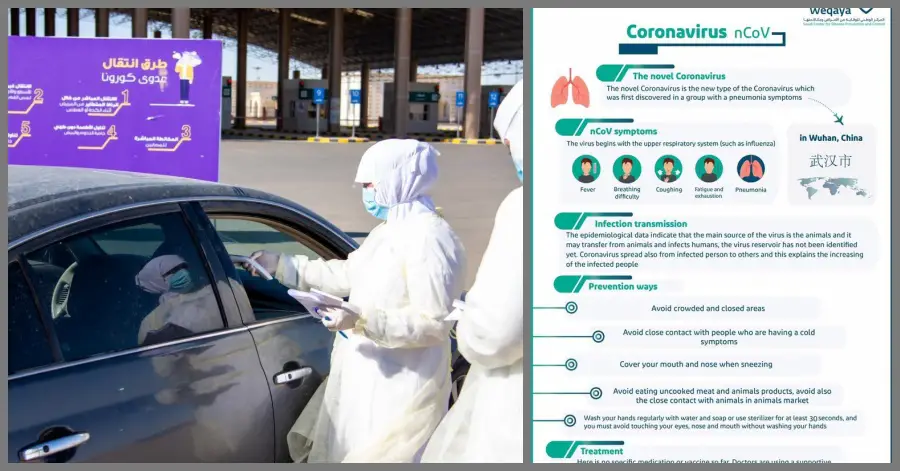On Wednesday (March 4), the Saudi government announced that it will temporarily suspend Umrah for citizens and residents in the Kingdom due to the coronavirus outbreak, according to an update by the Saudi Press Agency (SPA).
Furthermore, Saudi’s Foreign Ministry added that the decision will be “reviewed continuously,” and the suspension will be lifted once the situation is under control.

Guide to Prevent the Spread of Novel Coronavirus
Under the said temporary ban, Saudi nationals and residents living in the Kingdom wanting to perform Umrah will not be allowed into Islam’s holiest sites.
Meanwhile, the Ministry of Hajj and Umrah has announced that it is working to help foreign pilgrims still in the Kingdom return to their countries.
It can be recalled last week that the Kingdom closed off the holiest sites in Islam to foreign pilgrims over the coronavirus.
In line with this, the Saudi Center for Disease Prevention and Control shared some helpful tips and a guide on how to prevent the spread of the infection:
Based on the epidemiological data shared by the World Health Organization (WHO), the main source of the virus are animals, and it may transfer from animals and then infect humans.
And while the virus reservoir has not been identified yet, the coronavirus can easily spread from one infected person to another thus the following preventive guidelines must be observed accordingly:
- Avoid crowded and closed places.
- Avoid having contact with people who exhibit symptoms of the virus which include fever, cough, difficulty of breathing, fatigue and exhaustion, and pneumonia.
- Observe proper respiratory hygiene: cover your nose and mouth with clean tissue paper or your sleeves when coughing or sneezing.
- Do not eat raw or undercooked meat and animal products. In the same way, avoid getting in contact with animals in animal markets or other places.
- Always wash your hands regularly with clean water and antibacterial soap or cleanse your hands using a hand sanitizer for at least 30 seconds. Avoid touching your eyes, nose, and mouth without washing your hands first.
Here is the infographic shared by the Saudi Center for Disease Prevention and Control via Twitter:
Saudi Center for Disease Prevention and Control define Novel Coronavirus (2019-nCoV) and ways of prevention.#SPAGOV pic.twitter.com/6Yw3FzMb3n
— SPAENG (@Spa_Eng) February 28, 2020
https://platform.twitter.com/widgets.js
Last February 27 (Friday), Saudi Arabia announced that it had temporarily suspended entry for visitors from coronavirus-hit countries with tourist visas, as well as pilgrims embarking on the Islamic pilgrimage of Umrah.
The list of the countries and territories from which passengers can no longer enter Saudi Arabia on a tourist visa include Afghanistan, Azerbaijan, China, Hong Kong, Indonesia, Iran, Italy, Japan, Kazakhstan, Macau, Malaysia, Pakistan, Philippines, Singapore, Somalia, South Korea, Syria, Taiwan, Thailand, Uzbekistan, Vietnam, and Yemen.
On Monday (March 2), Saudi Arabia reported its first case of the coronavirus: a Saudi citizen, who came from Iran via Bahrain. According to ministry officials, the citizen did not disclose his visit to Iran at the Saudi port.
The infected patient is currently isolated in the hospital, and the case is being dealt with in line with the required health procedures.
Furthermore, the people who have come in contact with the infected person were identified, and samples were taken from them for examination by the National Center for Disease Prevention and Control, the Ministry of Health disclosed.
ALSO READ: Saudi Arabia Restricts Entry for GCC Citizens & Residents due to COVID-19